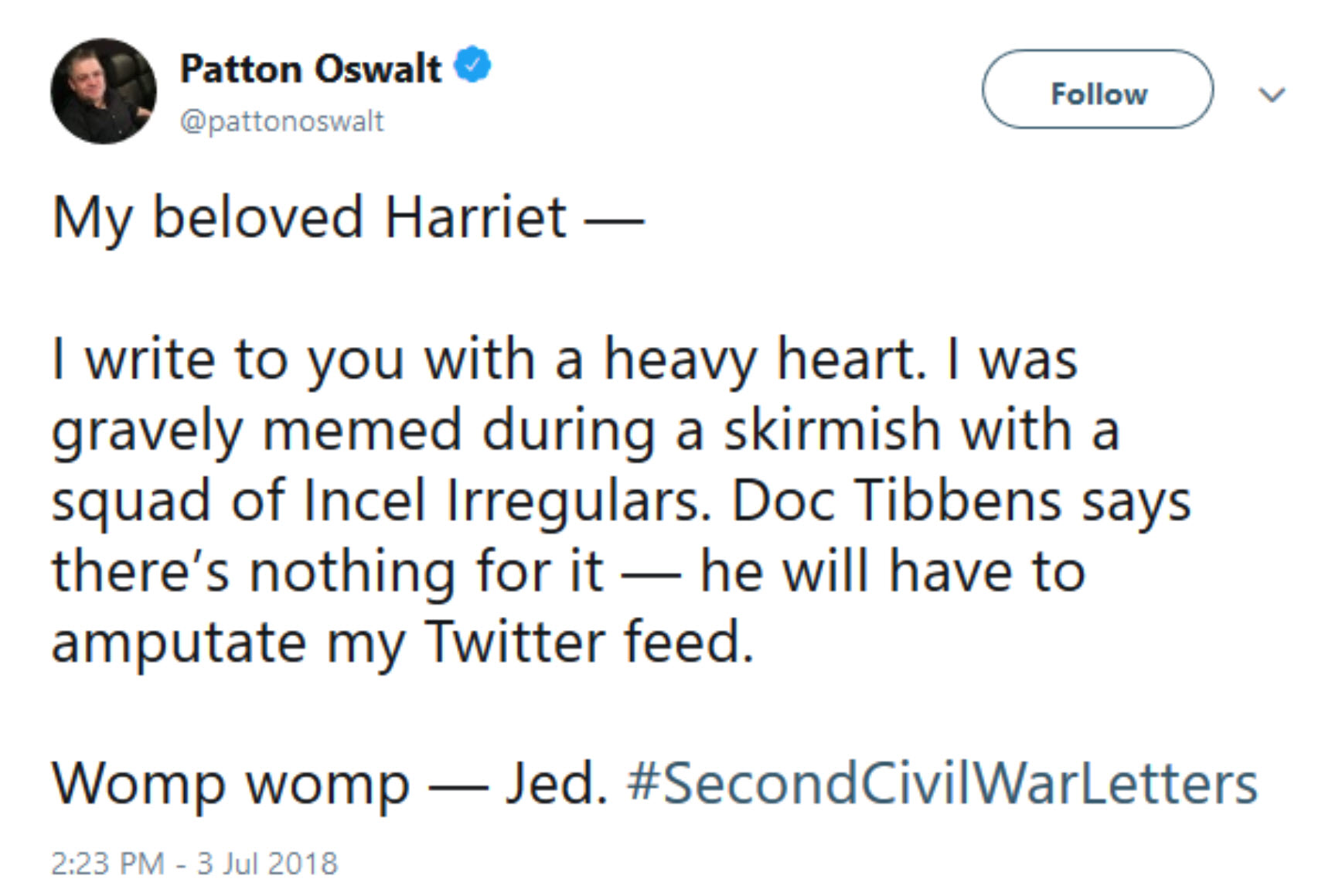It’s difficult to imagine what was going through Alex Jones’ mind when he tweeted a July 1 warning about an impending “civil war” that would be launched by Democrats on Independence Day. In an internet broadcast that reached over eight hundred thousand people, the owner of “Infowars” claimed that the left was being encouraged by “elite publications” to overthrow the government.
As absurd as it sounds, it just so happened to start one of the best memes of 2018 so far, with #SecondCivilWar and #SecondCivilWarLetters trending on Twitter as the public wrote imaginary letters from the non-existent warfront.

While it might have been entertaining to watch the internet have a field day with Jones’ tweet, it’s sobering to remember that this wasn’t a joke or a sarcastic stunt. This was the owner of a major media company openly spreading an outrageous conspiracy theory that he believed to be solid enough for some publicity.
Maybe it’s safe to assume that the general public understands that it was unreasonable and unfounded, but the overall success that “Infowars” has found over the years indicates that there are plenty of people who see validity in Jones’ twisted conspiracies.
“Infowars” has never been known for being a source of factual or even plausible reporting. The organization regularly releases articles based on misinformation and alt-right bias, and it has promoted conspiracies such as “Pizzagate,” which claimed during the 2016 presidential election that a pizzeria in Washington D.C. was the center of a child sex trafficking ring involving high-ranking Democrats.

But the most controversial part of “Infowars” is Alex Jones himself. He became notorious after claiming that the Sandy Hook Elementary massacre, which left twenty children and six adults dead, was a hoax, and called the victims of the Parkland massacre “crisis actors.” He also holds an intense distrust towards the U.S. government, claiming that it was involved in both the Oklahoma City Bombing and the September 11 attacks.
Alex Jones certainly isn’t the first conspiracy theorist to make outrageous and oftentimes offensive claims. But he’s one of the few to run a website that receives approximately ten million visits per month or to have over eight hundred thousand followers on Twitter. This is exactly what makes him so dangerous to those he spreads lies about.
A following the size of Jones’ means that an outrageous theory that might otherwise be harmless can easily become a vehicle for abuse. Parents of children killed at Sandy Hook have stated in a lawsuit against Jones that they’ve faced threats and harassment as a result of his claims that their deceased children never even existed.
A Boston man made similar claims of abuse that were the result of “Infowars” incorrectly identifying him as the Parkland shooter because of a picture of himself on social media wearing a communist shirt, which is now the subject of his lawsuit against the company.
But beyond the harm that Jones can cause for individuals in his line of fire, his company is only a sliver of the threat this new type of outlet he has helped create poses. A threat that wants to be as legitimate as the major news networks but only complicates the public’s media literacy. It is, as some call it, “Info-tainment.”
Outlets like “Infowars” try to look like legitimate news sources but ignore the ethical standards that real journalists adhere to. These companies care about profit above all else, and are willing to sacrifice accuracy and good reporting for ratings.
So it’s possible that Alex Jones doesn’t believe most of the lies that he tells the public and instead only makes things up for the sake of getting publicity for his company or attracting fellow skeptics to his website. In any case, it’s a disgusting manipulation of a public that seems to lack a media literacy that is crucial in determining whether or not to trust what they’re reading.
When an outlet like “Infowars” markets itself as the only trustworthy source of news, it’s in fact contributing to the crisis of fake news that never seems to go away. It tries to isolate its audience in a way that makes them distrust all other reliable news outlets and less likely to question what they’re being told.
Fox News has been criticized for this sort of behavior, including when host Tucker Carlson recently told viewers to “always assume the opposite of whatever they’re telling you” on the major news stations. With so many media outlets to choose from, the public has to expose itself to a wide variety of news sources in order to make truly informed opinions.
But that’s not always the case, and Alex Jones has perfected the art of manipulating the opinions of those who don’t expose themselves to a wide enough variety of news outlets. It’s his own twisted way of spreading even the most absurd alt-right propaganda to those who are the most likely to believe it.

Whether Alex Jones really thinks he’s a prophet of the alt-right or simply concocts ridiculous stories for the notoriety, he shouldn’t be written off as a harmless fanatic. He’s been given far more of the public’s attention than he deserves, and even though most of that attention is negative, he doesn’t really seem to care.
Jones and his company can only survive by alienating their audience from the mainstream media, and the more that he’s attacked by the general public, the more propaganda he can sell to his followers. While some might think that it’s fine for a sector of the population to be entrenched in conspiracy, the outrageous stories that they believe can have tremendous impacts on the individuals they target.
They call the parents of murdered children liars. They brand the victims of a massacre as actors. They plaster an innocent person’s face on the internet with no verification and accuse him of a viscous crime. Alex Jones might be an easy target to poke fun at on the internet, and sometimes he just sets himself up to be made into a viral meme. But when all is said and done, his lies and their consequences are nothing to laugh about.














